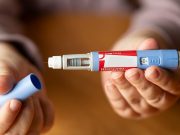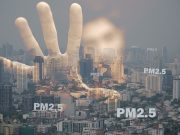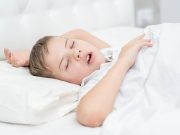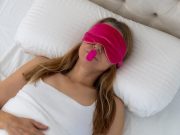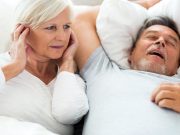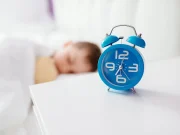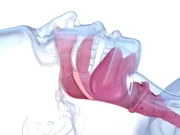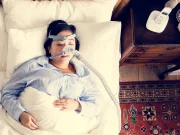Tag: EPAP
CHEST: Mortality Down With GLP-1 Receptor Agonist Use in T2D, Especially in Those With...
20 percent greater mortality benefit seen in obstructive sleep apnea population
Higher Air Pollution Exposure Tied to Worse Sleep Apnea
Study revealed link between long-term particulate matter exposure and apnea hypopnea index
Adenotonsillectomy May Be No Better Than Watchful Waiting in Young Children With Mild OSA
Difference of medium effect size seen when comparing total OSA-18 questionnaire score in favor of adenotonsillectomy
Doctors Warn Against Mouth Taping During Sleep
Obstructive Sleep Apnea Severity Higher on Weekends
Authors recommend keeping the same sleep schedule throughout the week and weekend
Sleep Apnea Increases Sudden Cardiac Arrest Risk in Children With Epilepsy
Increased SCA risk seen in association with long-term CPAP, while risk reduced with adenotonsillectomy
Hypoglossal Nerve Stimulator Implantation Safe for OSA in Children With Down Syndrome
Hypoglossal nerve stimulator implantation effective for children with Down syndrome aged younger than 13 years
Adenotonsillectomy Tied to Decrease in Heart Rate, Cardiac Output in Children
Findings seen in children with adenotonsillar hypertrophy and obstructive sleep disordered breathing
Blowing Conch Shell Tied to Improved Obstructive Sleep Apnea Measures
Benefits include reduced daytime sleepiness, improved subjective sleep quality, and decreased apnea-hypopnea index
CPAP Preferentially Improves Cardiovascular Outcomes in High-Risk OSA
Stronger differential effect for CPAP seen for those without excessive sleepiness, without increased blood pressure


